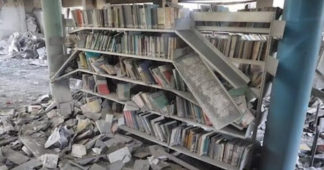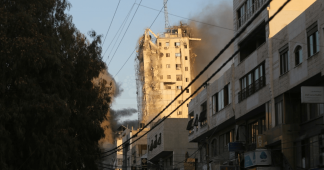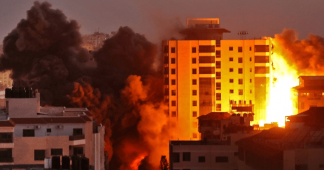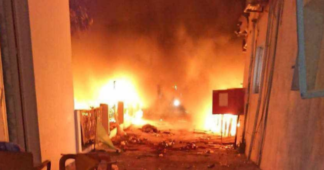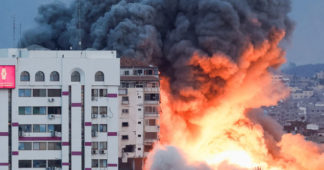Israel has deliberately destroyed dozens of archaeological sites and ancient sites in the besieged Gaza Strip since 7 October, in a blatant attempt to target Palestinian cultural heritage.
Yesterday Israeli warplanes bombed the ancient Othman Bin Qashqar Mosque in the Old City of Gaza, killing a number of Palestinians and causing damage to nearby homes. The mosque was built in 620AH in the Al-Zaytoun neighbourhood, east of Gaza City, and is considered one of the oldest mosques and archaeological sites in the Gaza Strip.
According to Palestinian sources, the Ministry of Culture recorded that Israeli warplanes have bombed eight museums since the beginning of the war, including the Rafah Museum, Al-Qarara Museum and the Khan Yunis Museum, in addition to destroying most parts of Gaza’s Old City, including dozens of historical buildings i.e. churches, mosques, museums and archaeological sites.
Israel has also destroyed nine publishing houses and libraries and destroyed or partially damaged at least 21 cultural centres.
The Great Omari Mosque, located in the Daraj neighbourhood in Gaza, is considered one of the most important and oldest mosques in Palestine and the first mosque in the Gaza Strip. It was destroyed in an air strike.
The mosque was named after the second Muslim Caliph, Omar Bin Khattab, and which was later described as “the beautiful mosque” by traveller Ibn Battuta.
The Israeli bombardment also targeted the Church of Saint Porfirio, located in the Zaytoun neighbourhood, which was built in 425AD and was renovated in 1856.
The Sayyed Al-Hashim Mosque, considered one of the most important mosques in the Old City of Gaza because it is thought to hold the tomb of Prophet Mohammed (peace be upon him)’s grandfather, Hashim Bin Abd Manaf, was also destroyed.
The Byzantine church in Jabalia, a prominent landmark in the Levant, was also levelled, along with Al-Khader Shrine in the city of Deir Al-Balah, which is the first and oldest Christian monastery built in Palestine by Saint Hilarius during the Byzantine era.

